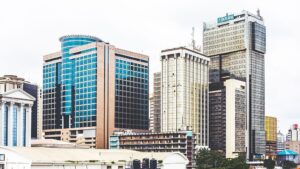The Central Bank of Nigeria’s recent increase in the Monetary Policy Rate (MPR) from 11.5% to 13% is set to spike the cost of borrowing from commercial banks to around 30% APR. This has raised concerns about the affordability of Nigeria’s housing market, which remains a pressing issue as the government struggles to address the nation’s housing deficit. Real estate developers are also facing challenges in meeting project timelines and completions as the industry battles the rising cost of construction materials and supply constraints.
The impact of fast urbanization, a growing younger demographic, and increasing infrastructure provision continues to put pressure on property values, even in tier-2 cities such as Abeokuta, Benin, and Asaba. Despite these challenges, there is still a significant demand for housing in Nigeria, which makes the impact of the MPR benchmark raise an important consideration for the housing market.
The increase in inflation rates by over 60% from pre-pandemic levels, combined with the growing level of economic uncertainty, may pose a steep barrier that discourages developers and investors from accessing bank loans for housing provisions. This can negatively affect future housing stock and quality as developers may turn to alternative funding options such as partnerships and off-plan sales to boost delivery.
However, there may be a silver lining to the current situation. Developers and investors can explore innovative financing models to provide affordable housing solutions, such as crowdfunding, impact investing, and social bonds. The potential for private sector players to finance housing projects is significant, with an estimated 17 million housing units required to bridge Nigeria’s housing deficit.
One example of innovative financing in the Nigerian housing market is the Federal Mortgage Bank of Nigeria (FMBN) rent-to-own scheme, which provides affordable housing options to low and middle-income earners. The scheme allows prospective homeowners to rent a property with the option to purchase it at a later date. This initiative not only increases the supply of affordable housing but also enables Nigerians to own their homes, thereby reducing the country’s housing deficit.
In conclusion, the CBN’s MPR benchmark raise may increase the cost of borrowing from commercial banks and discourage developers and investors from accessing bank loans for housing provisions. However, there are alternative financing models available to address the affordability issue and boost the delivery of affordable housing in Nigeria. Innovative financing models such as crowdfunding, impact investing, and social bonds can provide a significant boost to the private sector’s ability to finance housing projects, which is critical in addressing Nigeria’s housing deficit.




